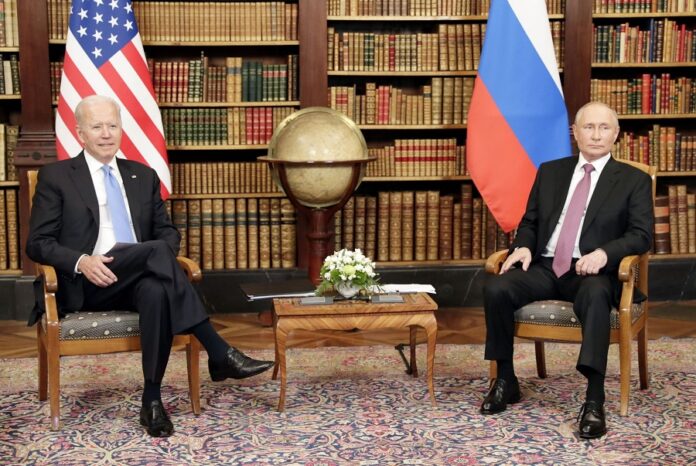U.S. President Joe Biden and Russian President Vladimir Putin agreed on Wednesday to begin cybersecurity and arms control talks at a summit in Geneva, that highlighted their discord on those issues including human rights and Ukraine, according to Reuters.
In their first meeting since he took office in January, Biden asked Putin how he would feel if a ransomware attack hit Russia‘s oil network, a pointed question making reference to the May shutdown of a pipeline that caused disruptions and panic-buying along the U.S. East Coast.
While Biden stressed that he did not make threats during the three-hour meeting, he said he outlined U.S. interests, including cybersecurity, and made clear to Putin that the United States would respond if Russia infringed on those concerns.
Both men used careful pleasantries to describe their talks in a lakeside Swiss villa, with Putin calling them constructive and without hostility and Biden saying there was no substitute for face-to-face discussions.
Putin said on Wednesday that he had been satisfied by Biden’s explanation of the remark.
But there was no hiding their differences on issues such as human rights, where Biden said the consequences for Russia would be „devastating” if jailed Kremlin critic Alexei Navalny died, or cyberspace, where Washington has demanded Moscow crackdown on ransomware attacks emanating from Russian soil.
The query referred to a cyberattack that closed the Colonial Pipeline Co system for several days in May, preventing millions of barrels of gasoline, diesel and jet fuel from flowing to the East Coast from the Gulf Coast.
Biden also vowed to take action against any Russian cyberattacks: „I pointed out to him that we have the significant cyber capability. And he knows it.”
Speaking to reporters before Biden, Putin dismissed U.S. concerns about Navalny, Russia’s increased military presence near Ukraine’s eastern border and U.S. suggestions that Russians were responsible for the cyberattacks on the United States.
He also suggested Washington was in no position to lecture Moscow on rights, batting away question about his crackdown on political rivals by saying he was trying to avoid the „disorder” of a popular movement, such as Black Lives Matter.
Neither side gave details on how their planned cybersecurity talks might unfold, although Biden said he told Putin that critical infrastructure should be “off-limits” to cyberattacks, saying that included 16 sectors that he did not publicly identify.
Both Biden and Putin said they shared a responsibility, however, for nuclear stability, and would hold talks on possible changes to their recently extended New START arms limitation treaty.
The two leaders pledged to resume work on arms control as well as cybersecurity and to look for areas of possible cooperation, signs of some hope for a relationship between two countries with little common ground of late.
Putin said it was „hard to say” if relations would improve, but that there was a „glimpse of hope.”


